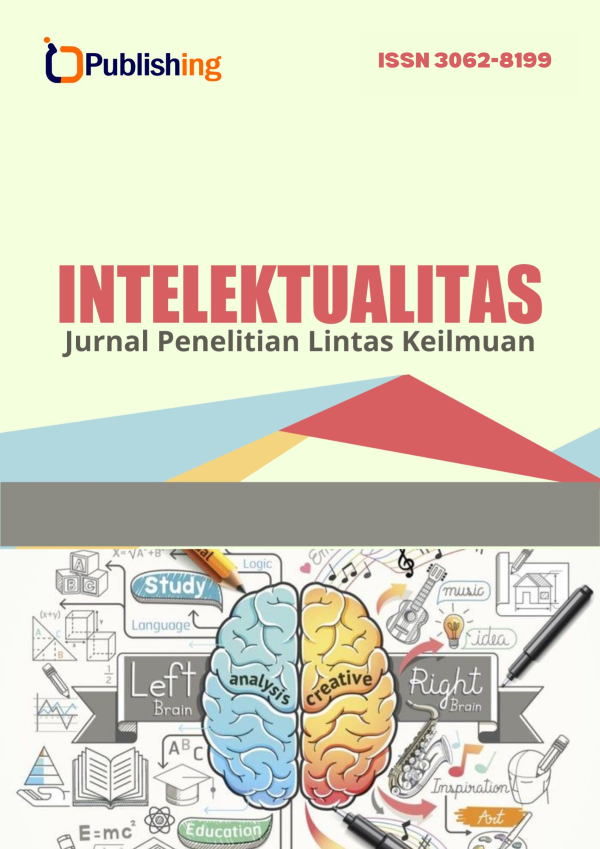Issues of Strengthening Civic Competence Through The Modernization of The “History of Uzbekistan” Course In Higher Education
DOI:
https://doi.org/10.47134/intelektualitas.v1i4.3937Keywords:
Education, Globalization, Technology, Ideology, Creativity, Society, Social Justice, Equality, Patriotism, HumanismAbstract
With an emphasis on efficiently structuring this process through the course “History of Uzbekistan”, the article emphasises the importance of fostering students’ civic engagement and social skills in the twenty-first century. It highlights the value of incorporating cutting-edge methods and pedagogical-psychological concepts – which are founded on sophisticated international educational practices – into instructional activities. Through education grounded in historical values, patriotism, and humanism, special attention is paid to fostering young people’s sense of personal and social responsibility as well as assisting them in becoming active citizens. The study examines the benefits of teaching “History of Uzbekistan” through project-based learning, creative exercises, self-directed thinking, and contemporary technology. An effective strategy for developing students’ civic competence is a pedagogical model with a scientific foundation
References
Aichino, A. L. O. (2024). Does deliberation improve civic competences in adolescents? A systematic review of deliberative experiments. Ciencias Psicologicas, 18(1). https://doi.org/10.22235/cp.v18i1.3551
Bertolin, J. (2024). Towards a democratic and fair society: Civic competences of Brazilian graduates. Education, Citizenship and Social Justice, 19(2), 313–328. https://doi.org/10.1177/17461979221131148
Buenaventura-Rubio, M. A. (2025). Civic-cultural cooperation and service-learning projects as determinants of students’ competence development. European Public and Social Innovation Review, 10. https://doi.org/10.31637/epsir-2025-1319
Cegarra-Navarro, J. G. (2024). The role of knowledge and interpersonal competences in the development of civic and public engagement and entrepreneurial intention. International Entrepreneurship and Management Journal, 20(1), 189–213. https://doi.org/10.1007/s11365-023-00910-0
Decree No. DP-5106 of the President of the Republic of Uzbekistan dated July 5, 2017, “On measures to improve the effectiveness of the state youth policy and support the activities of the Youth Union of Uzbekistan” // https://lex.uz/docs/-3255680
Decree No. DP-6108 of the President of the Republic of Uzbekistan dated November 6, 2020, “On measures to develop the fields of education and upbringing, and science in the new period of development of Uzbekistan” // https://lex.uz/ru/docs/-5085999
Elecalde, R. G. (2024). Digital and Social-Civic Skills in Future Primary Education Teachers: A Study from the Didactics of Social Sciences for the Improvement of Teacher Training in Competences. Education Sciences, 14(2). https://doi.org/10.3390/educsci14020211
Incheon Declaration / Education 2030: Towards inclusive and equitable quality education and lifelong learning for all Word Education Forum, 19-22 may, 2015, Incheon, Republic of Korea.
Ingoglia, S. (2025). Civic Engagement and Civic Competences in Adolescence: A Gender-Based Perspective. Social Psychological Bulletin, 20. https://doi.org/10.32872/spb.13645
Johansson, P. (2024). Should Government Agencies Be Trusted? Developing Students’ Civic Narrative Competence Through Social Science Education. Journal of Social Studies Research, 48(1), 64–79. https://doi.org/10.1177/23522798231223668
Lundberg, E. (2024). Can Participation in Mock Elections Boost Civic Competence among Students? Journal of Political Science Education, 20(2), 274–291. https://doi.org/10.1080/15512169.2023.2300425
Medne, D. (2024). The Development of Civic Competence in Higher Education to Support a Sustainable Society: The Case of Latvian Higher Education. Sustainability (Switzerland), 16(6). https://doi.org/10.3390/su16062238
Sobirovich, T. B. (2020). The criterion of human indicators in development and renewals in Uzbekistan. EPRA International Journal of Multidisciplinary Research (IJMR), 6(8), 509-511.
Sobirovich, T. B. (2023). Basic Criteria for Building the Third Renaissance in Uzbekistan. Asian Journal of Applied Science and Technology (AJAST), 7(1), 149-157.
Teshayev, A. T. (2024). “Analysis of Scientific Research on the Development of Active Civic Competence in Students” // “Pedagogical Acmeology” International Scientific and Methodical Journal. 4(12), 2024. Bukhara. -pp. 161-165. (13 00 00 No. 38)
Teshayev, A. T. (2024). “Development of Active Civic Competence in Students through the Methodical Improvement of Teaching “History of Uzbekistan” // Education and Innovative Research, 2024, No. 3. https://doi.org/10.53885/edinres. Bukhara. -pp. 286-293. (13 00 00 No. 37)
Teshayev, A.T. “Improving the Content of the Methodology for Teaching “History of Uzbekistan” Based on the Development of Active Civic Competence in Students” // Journal of Interpretation and Research, Impact Factor: 8.2 | 2181-3035 | No. 14(51). -pp. 63-71. (13 00 00 No. 39)
The 1st part of Article 6 of the Humanitarian Standards of the European Security and Cooperation Committee, Copenhagen Council Document: “Documents on the Humanitarian Standards of the European Security and Cooperation Organization”. Edited by A. Saidov. – Tashkent: 2002.
Villaman, N. (2025). Cultivating Political Efficacy: Facilitation as a Catalyst for Democratic Education and Civic Competence. Journal of Civil Society, 21(1), 1–20. https://doi.org/10.1080/17448689.2024.2390054
What is data science? // https://www.ibm.com/think/topics/data-science
What Is Human Capital? // https://www.investopedia.com/terms/h/ humancapital.asp











